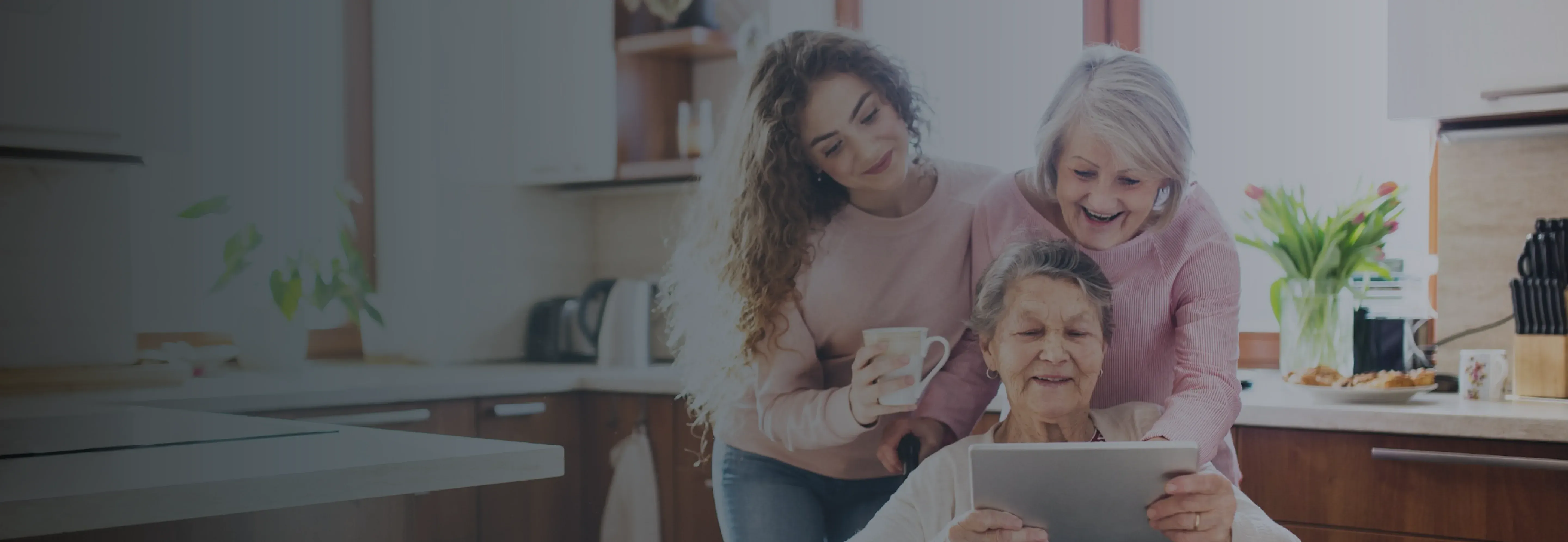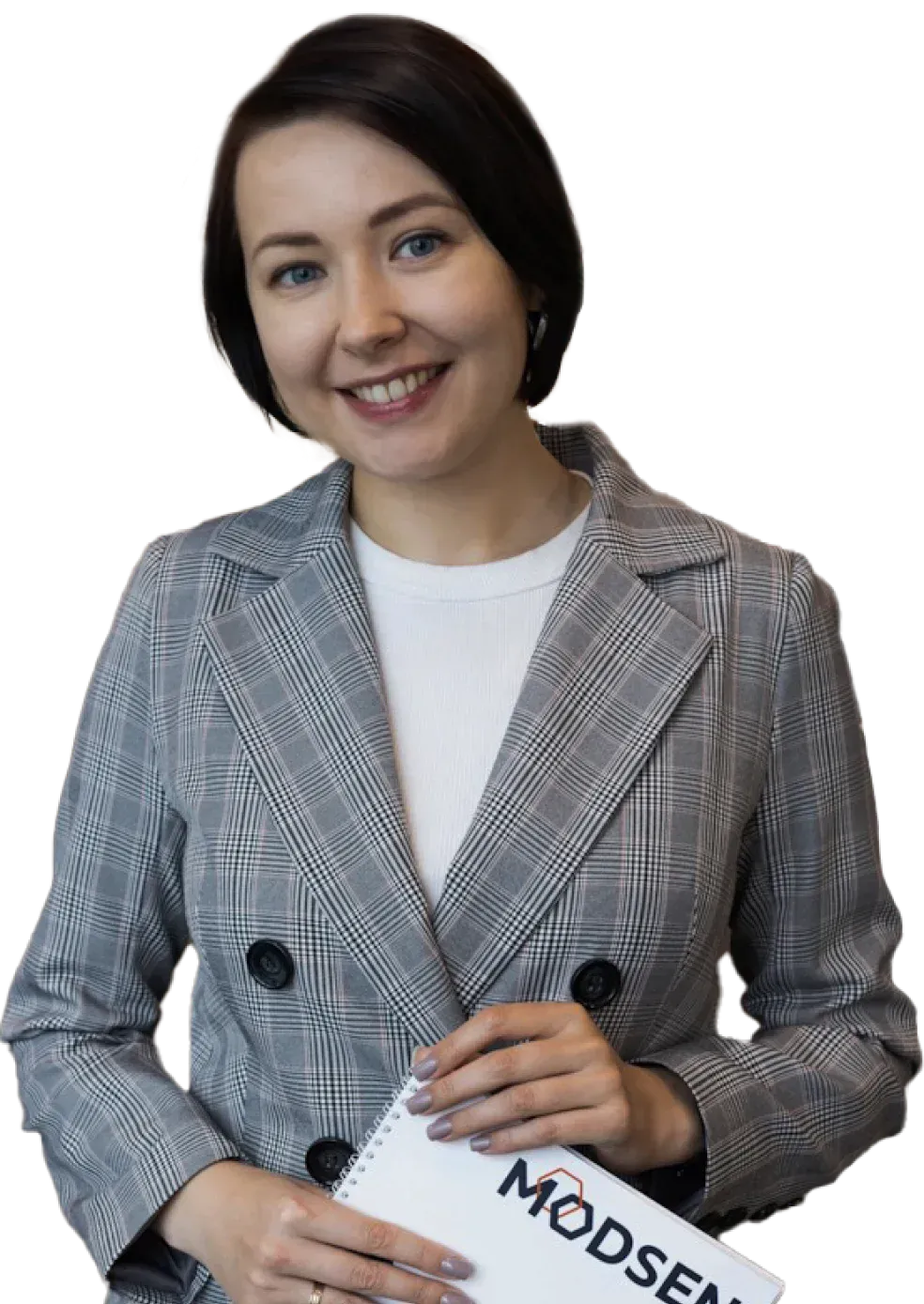
AI on guard of elderly care: Bringing remote monitoring to the next level

Ekaterina Zharikova
Medtech Software Development Expert
According to the latest available statistics, 40% of European women aged over 65 and 22% of men of the same age category live alone. The reasons for that might vary but the consequences are often the same – when a health emergency occurs, caregivers are not around to help.
The rising share of the elderly population, which is expected to increase from 600 million to 2 billion by 2050, has given a major impetus to the development of innovative systems that al600 million to 2 billion by 2050low younger family members to ensure the well-being of their loved ones and stay alert in case of urgency. The remote monitoring technology we’re covering in this article has been around for over two decades helping seniors live longer and healthier while ensuring peace of mind for caregivers. With the trend for ubiquitous AI incorporation, remote monitoring has taken a new shape, powered to provide even more efficient assistance in senior care.
Top-7 AI remote monitoring use cases

Compared to their older versions, AI-powered applications deliver significantly more effective results when it comes to addressing health emergencies. Apart from showing better performance in terms of reaction, innovative systems can foresee the aggravation of dangerous health conditions and prevent them from happening by alerting caregivers in advance. Here are a few more insights into the once unimaginable potential of AI for senior care.
Fall detection
According to the WHO, falls rank as the second most common cause of unintentional injury deaths worldwide. Among these fatalities, adults aged 60 and above represent the largest demographic affected by fatal falls. AI-powered algorithms can analyze data from sensors and cameras to detect falls in real time and alert caregivers or emergency services, ensuring prompt assistance in case of accidents.
Chronic disease management
Chronic, or non-communicable diseases are responsible for 82% of all premature deaths among the elderly worldwide. AI models effectively process the data collected from wearable devices like glucose and blood pressure monitors to track health state trends, predict potential complications or fits, and recommend personalized lifestyle changes or medication adjustments.
Health state deterioration predictions
By tracking movements and patient vital signs such as heart rate, blood pressure, glucose levels, and oxygen saturation through wearables, AI algorithms can detect patterns and anomalies that may signal changes in health status or safety risks. Continuously monitoring health metrics and identifying deviations from the norm, AI enables caregivers and healthcare professionals to intervene promptly, providing medical attention as needed.
Medication management
The statistics say that the alarming 94.9% of adults over 60 suffer from at least one chronic condition, while 78% live with two or more. In most cases, medications can help offset and prevent bouts, significantly extending life expectancy. However, only regular and timely drug intake ensures sustainable health states. To avoid missed doses, AI remote monitoring systems provide reminders, dosage instructions, and detect medication-related issues, alerting caregivers accordingly.


Cognitive health monitoring
Being a vital part of remote monitoring systems, wearable devices can continuously monitor gait patterns and detect subtle changes in movement that may indicate cognitive decline. For example, if an elderly individual begins to exhibit irregular walking patterns or frequently forgets routine tasks, AI algorithms can flag these deviations for further assessment by healthcare professionals. On top of that, AI-based cognitive test apps can administer daily memory quizzes and attention exercises, recording response times and accuracy allowing family members to spot and track the progression of cognitive decline.
Mental health monitoring
Loneliness, low frequency of social interactions, and troubling health conditions might cause depression, which accounts for 16% of all chronic disease cases among the senior population. AI algorithms can analyze language patterns in conversations, social media interactions, and voice recordings to detect early signs of depression, anxiety, and other mental health conditions. Integrated AI assistants can also help seniors cope with loneliness by engaging in conversations and providing companionship.
AI-powered chatbots for health education
Loneliness, low frequency of social interactions, and troubling health conditions might cause depression, which accounts for 16% of all chronic disease cases among the senior population. AI algorithms can analyze language patterns in conversations, social media interactions, and voice recordings to detect early signs of depression, anxiety, and other mental health conditions. Integrated AI assistants can also help seniors cope with loneliness by engaging in conversations and providing companionship.
Modsen x HealthTech
“Our team of healthcare software engineers has a proven track record of developing leading-edge AI products for multi-scale companies aiming to provide their customers with elevated health management solutions. 10+ years of industry-specific expertise paired with a passion for innovation makes us an ultimate choice for your next project in the realm of MedTech”
The final thought
AI-powered remote monitoring systems have much broader usability cases, stretching far beyond elderly care. Distant patient monitoring is expected to transform the traditional healthcare provision model, making it more accessible, convenient, preventative, and error-free. Stay at the edge of innovation by building software solutions that will be shaping the foreseeable future of healthcare.